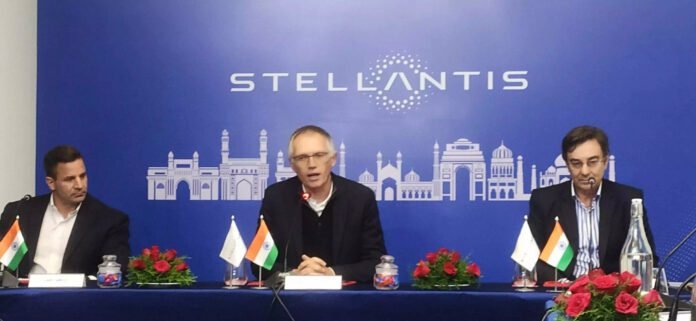Stellantis announced on Thursday that it will invest $1.58 billion (or 1.5 billion euros) in Leapmotor, a Chinese startup that makes electric vehicles, as traditional automakers search for a method to compete in China’s fiercely competitive market.
With the goal of increasing sales of the Chinese brand’s electric vehicles abroad, the companies have joined forces to form the Leapmotor International joint venture. In the joint venture, Stellantis will own a controlling 51% stake.
Stellantis, the company behind brands including Maserati and Chrysler, announced that the investment will grant it two board seats and almost 20 percent of the stock in Leapmotor. China is the largest market for electric vehicles in the world, and domestic manufacturer BYD and American automaker Tesla lead it. Domestic startups like Nio, Xpeng, and Li Auto are posing a serious threat to the market, and tech companies like Xiaomi and Huawei are also getting involved.
Potential expansion in the Chinese market has been hampered by the perception that traditional automakers are too slow to switch to producing electric vehicles. Based on the company’s published statistics, Stellantis has a meagre 0.3% market share in China due to its difficulties in selling cars there.
“This agreement offers Leap Motor and Stellantis definite synergies. According to Abhik Mukherjee, an analyst at Counterpoint Research, Stellantis stands to win by bolstering its position in the Chinese market, while Leap Motor benefits from an easier path into the European market. This information was sent to CNBC via email.

Stellantis seeks to elevate China
Through the agreement, Stellantis‘ activities in China may benefit from having a local partner take the lead. Carlos Tavares, CEO of Stellantis, stated in a press statement on Thursday that “with this strategic investment, we can address a white space in our business model and benefit from Leapmotor’s competitiveness both in China and abroad.”
Leapmotor, like a lot of other Chinese EV startups, has been trying to establish itself as a tech-first company. The company has created its own architecture for its cars, as well as a semi-autonomous driving system. Leapmotor, a company based in Hangzhou, is also expanding its production capabilities.
The Chinese company currently sells three various models of cars and in the upcoming years, it intends to introduce more vehicles in a variety of styles.
With the agreement on Thursday, Stellantis will have access to Leapmotor’s production network and technology, which will help the European company increase sales in China.

Leapmotor aims for rapid expansion abroad
This could support Leapmotor’s goals of becoming a major participant in the worldwide EV market. The business debuted the C10 sports utility vehicle last month at the prestigious European auto show, the IAA motor show, in Munich. The manufacturer stated during the occasion that it intends to launch five “globally-oriented” products worldwide in the upcoming two years.
At a press conference at the time, Leapmotor CEO Zhu Jiangming declared, “All of Leapmotor’s subsequent products will be designed and developed with a global mindset and adhere to global standards.”
Leapmotor can increase its car sales abroad with the aid of its worldwide joint venture with Stellantis. According to the companies, the JV has the only right to manufacture, export, and sell Leapmotor products outside of Greater China. The JV will start shipping cars in the second part of 2024.
Chinese automakers in Europe, according to Counterpoint’s Mukherjee, “face challenges in building consumer trust and establishing robust dealership networks.” Leapmotor may be able to enter Stellantis’ network with the use of this agreement, “potentially allowing sales under the Stellantis brand.” However, there has been some turbulence in the partnerships between traditional automakers and Chinese firms, which casts doubt on Stellantis’ significant investment.
Foreign automakers have realized that China is at the forefront of the transition to an electric vehicle. Although agreements may be made to reclaim access to vital technologies, these kinds of collaborations, particularly minority stakes like this one, have a dismal track record in the automotive sector, according to Bill Russo, CEO of investment advice firm Automobility, who spoke with CNBC.
A joint venture to manufacture Jeep goods in China between Stellantis and Guangzhou Automobile Company filed for bankruptcy last year.


